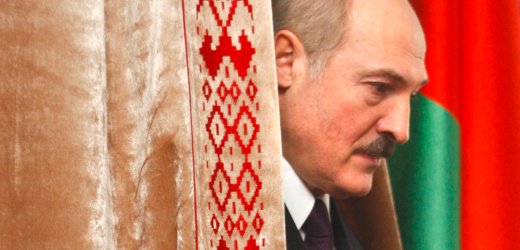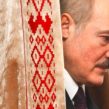
How Effective Is the Belarusian Opposition?
Publication: Eurasia Daily Monitor Volume: 10 Issue: 118
By:

According to the March 2013 national survey by IISEPS, a polling firm funded by the West, the opposition is trusted by 13.1 percent of Belarusians (https://iiseps.org/old/press7.html). Internecine fights within the opposition are one of the reasons for this low rating. Their past fights, however, pale beside the current situation. Almost daily, independent Belarusian media outlets and the Belarusian Service of Radio Liberty (BSRL) reflect mutual recriminations by the members of the opposition and non-governmental organizations (NGOs). The entire June 12 episode of the BSRL’s talk show Prague Accent was devoted to name calling. Specifically, Vladimir Matskevich, who leads the National Platform of the Civic Society’s Forum, called some members of the opposition soap bubbles. Olga Karach, the leader of the Nash Dom civic campaign, returned the insult. In her turn, Yelena Tonkacheva of the Center of Legal Transformation demanded an apology from Karach but failed to secure it (https://www.svaboda.org/content/article/25015225.html).
The leaders of the opposition routinely accuse each other of abusing and misusing Western funds. When the founder of the Belarusian Popular Front Zyanon Paznyak was asked whether he was invited to the June 11 Vilnius meeting of the opposition’s seven leaders (https://www.belaruspartisan.org/politic/234658/), he said that he was not and added that “national politics is not carried out with foreign money” (https://www.svaboda.org/content/article/25015112.html). In this context, Anatol Lyabedzka, the leader of the United Civic Party, suggested that an audit of Western financial aid ought to be conducted (https://naviny.by/rubrics/politic/2013/06/18/ic_articles_112_182092/). Yury Drakakhrust of the BSRL claimed that such an audit would be taken advantage of by the official law enforcement agencies because Article 369.2 of Belarus’s Criminal Code “effectively criminalizes any foreign aid of a socio-political nature,” and the prison term for the human rights activist Ales Bialyatsky sentenced for dodging taxes is living proof of how the authorities would use the proposed audit.
Against the backdrop of the opposition’s internecine battles, two trends appear to be noteworthy. First, Minsk has recently become successful in attracting Western money itself. For example, Opel will start building Corsas in Belarus in 2014. A framework agreement was signed on June 13 between James Bovenzi, general manager for GM in Russia, and Dmitry Egorov, director general of JV UNISON, a British-Belarusian joint-stock company. The automobiles will be sold in the markets of Russia, Belarus and Kazakhstan (https://media.opel.com/content/media/intl/en/opel/news.detail.html/content/Pages/news/intl/en/2013/opel/06-13-gm-to-assemble-in-belarus.html). Also, Culligan, which manufactures water treatment equipment, will launch an assembly facility in Zaslavl, Belarus, before the end of 2013, Culligan’s Senior Vice President Laurence Bower said in a meeting at the National Agency for Investment and Privatization in Minsk. “Here there are all the preconditions for production development. These include a well-trained workforce, geographic opportunities. From here we can export products to Europe and also to the countries of the Customs Union [composed of Russia, Kazakhstan and Belarus]” (https://news.belta.by/en/news/econom?id=718640).
The second trend has been a new tone adopted by some opposition-minded publicists regarding Alyaksandr Lukashenka’s regime. Thus Vitali Tsyhankou, a Minsk-based associate of the BSRL, suggested on his Facebook page that all “our” (i.e., opposition-minded) discussions about Belarus adhere to one of the three dominant “strategic approaches.” According to the first one, everything is so inferior in Belarus, including its people, that even toppling Lukashenka would not help as he would be replaced by a similar leader. Consequently, leaving the country for good is the only option. According to the second approach, Belarusians are already more genuine Europeans than Russians, Romanians, and Bulgarians; there is only one problem in Belarus—Lukashenka—but once he is removed, Belarus will become part of Europe. According to the third approach, the country is developing, and the existence of Lukashenka does not stand in the way of anyone desiring to do sundry useful things, like defending the Belarusian language and helping people; consequently, one has to stop whining and stay in Belarus. Remarkably, Tsyhankou claims that a combination of the second and third approaches would be most desirable, and some of his intellectual comrades-in-arms agree.
In the same vein, journalist Olga Timokhina, published a piece under the title “How we create Lukashenka” (www.gazetaby.com/cont/art.php?sn_nid=57628?). In it, Timokhina describes seven ways in which Belarusians, with the opposition’s active participation in the process, perpetuate the “Lukashenka regime.” Way 1 is voting for Lukashenka because “he will be elected anyway.” Way 2 is demonizing Lukashenka, i.e., painting him as an omnipotent oppressor of freedoms thereby discouraging the people’s longing for those freedoms. Way 3 is the longevity of opposition leaders who match four basic personas—an arrogant intellectual who attends the most expensive restaurants; a clown who raises a lot of noise in order to get beaten; a cynical associate of the Komsomol (Young Communist League) who can take personal advantage of any situation; and a trader of sincerity who is complacent and can equally convincingly talk about conflicting goals. Way 4 is a combination of mutual intolerance, name calling, internecine fights, accusations of treason and issuing statements that offend ordinary Belarusians (for example portraying the Great Patriotic War, a Russian/Belarusian name attached to World War II, as not great and not patriotic). Way 5 is propagating the view that Lukashenka lacks a national idea, whereas in fact he has one but it is not to the liking of the opposition. Way 6 is effectively embracing only such “European values” as wealth and comfort. In December 2010, many Belarusian college students, claims Timokhina, acknowledged that they wanted to spend 15 days behind bars for violating public order on election day because that opened for them the opportunities to continue their study in Europe. Way 7 is devotion to cheap sloganeering and to the political equivalents of computer games. “As a result,” Timokhina concludes, “the infantile post-modern anti-totalitarianism [of the Belarusian opposition] warms [vitalizes] the Lukashenka regime. Quite a few sober-minded people begin to feel that an iron fist is badly needed,” at the very least to bring such infantile behavior under control.




